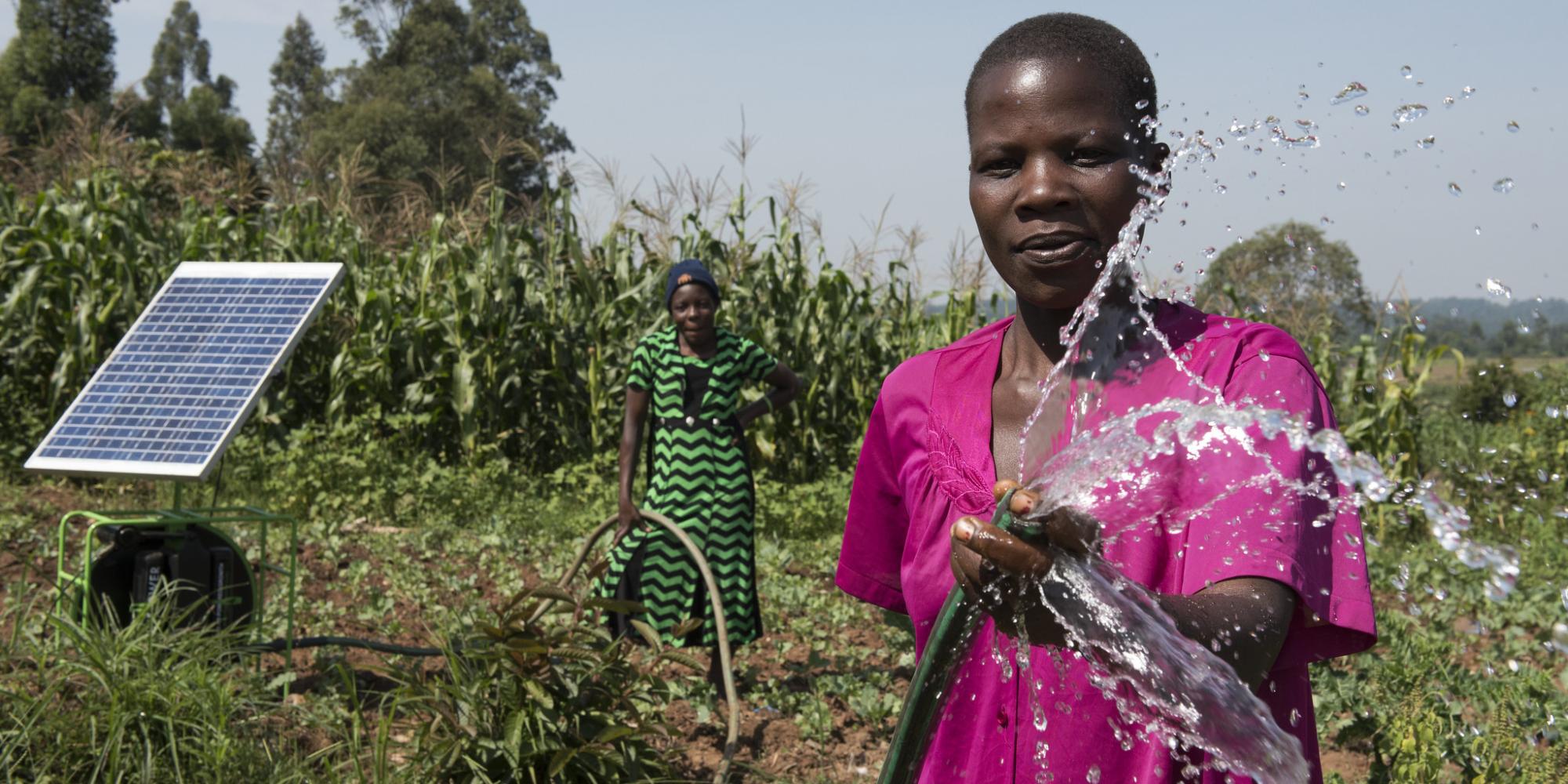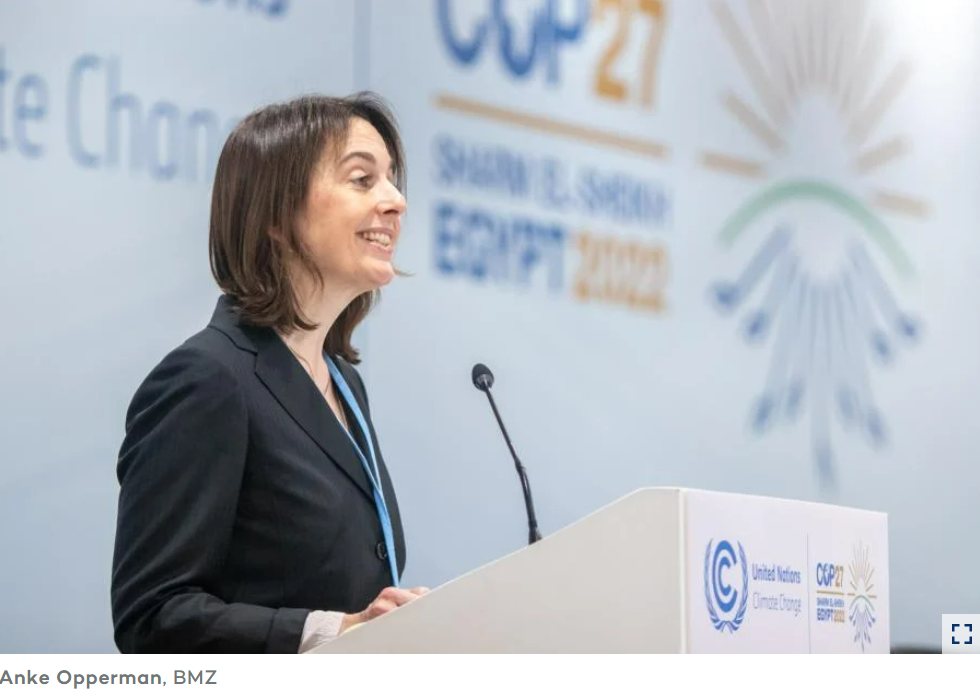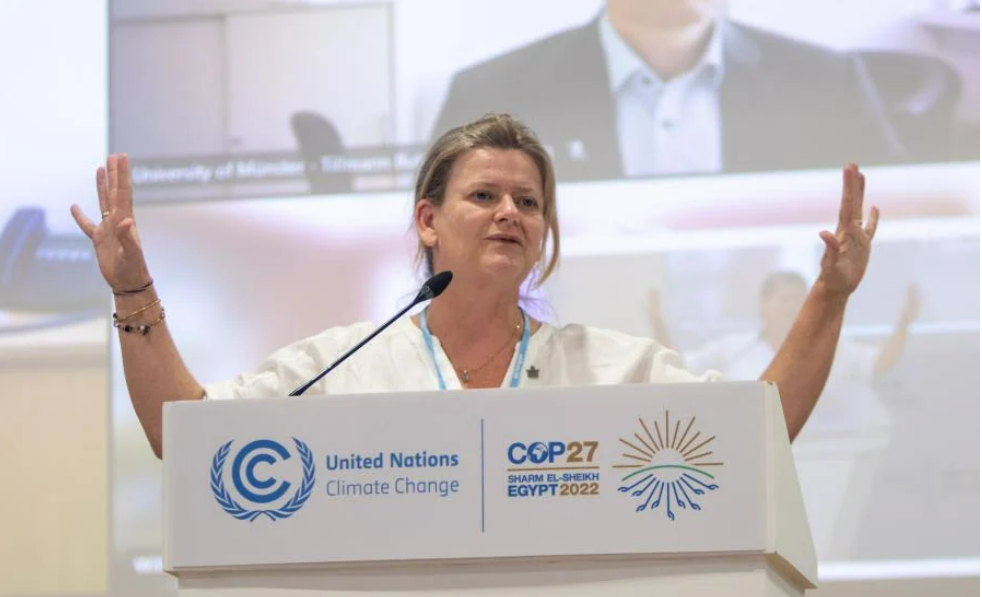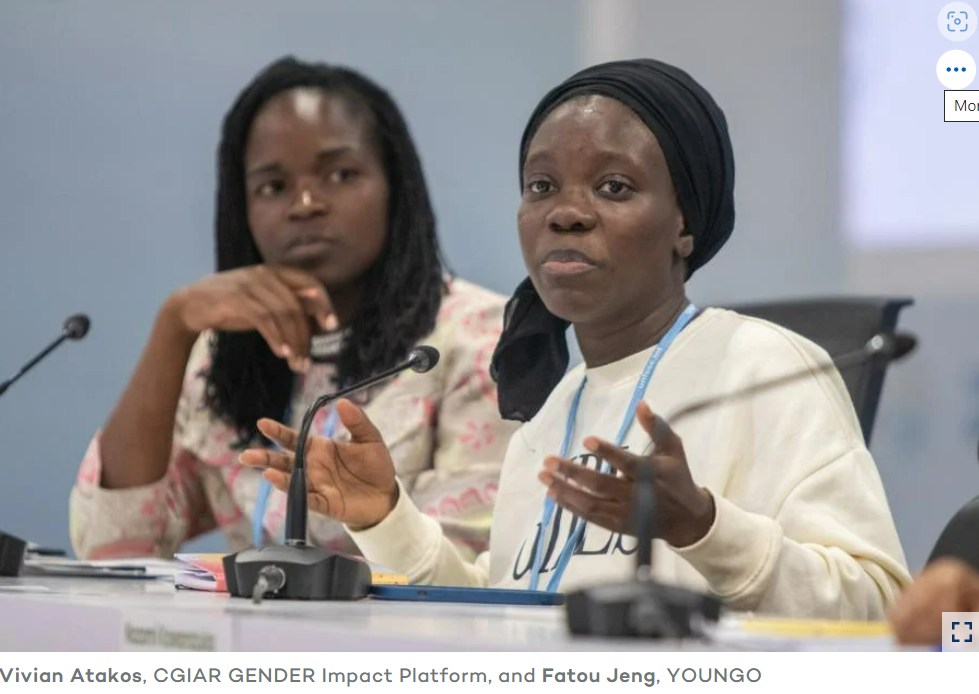Reaching women farmers with climate resilience strategies in Africa and Asia

This article was first published by Earth Negotiations Bulletin.
Panelists at a COP 27 side event highlighted the necessity and potential of gender-responsive approaches for building climate resilience in contexts of vulnerability, food insecurity, and conflict.
Effective pathways to climate resilience require the vital contributions of women, who are on the frontlines of agriculture around the globe. This CGIAR GENDER Impact Platform event foregrounded the necessity and potential of gender-responsive approaches for building climate resilience in contexts of vulnerability, food insecurity, and conflict.

Photo: Matthew TenBruggencate/IISD/ENB
Anke Oppermann, Federal Ministry for Economic Cooperation and Development (BMZ), Germany, highlighted women and girls as “agents of change” in agricultural systems, though they carry unequal burdens. She noted that a feminist development policy, which is a centerpiece of Germany’s new government, brings women and girls into focus in food development programmes. Oppermann underscored that gender-just societies are more peaceful and climate resilient.
Moderated by Vivian Atakos, CGIAR, the first panel emphasized: the need for more research that foregrounds the role of gender in food systems; the central role that an ecosystem-based agroecology can play in reducing inequality and enhancing climate resilience; and the structural, systemic nature of gender-based inequality.

Nicoline de Haan, Director, CGIAR GENDER Impact Platform (Photo: Matthew TenBruggencate/IISD/ENB)
Nicoline de Haan, CGIAR GENDER Impact Platform, highlighted: the need to “make the invisible visible” with: more research on the role of women in food systems; the stereotype that women are guardians, which obscures more nuanced understandings of their relationship to climate resilience; a prominent discourse of women as victims, which overlooks how women can be part of solutions; and recognizing gender as relational. De Hann urged listening to women and putting resources in their hands, including finance. Amplifying the message on cards distributed among the audience at the side event, De Haan said “A climate change solution that doesn’t work for women is not a climate change solution.”
William Moseley, Macalester College, described his research showing how social and economic interconnections have led to women increasingly using herbicides in farming in Africa, and labor constraints, as men increasingly leave agriculture. He said the cheap availability of herbicides have increased the use of these toxic chemicals. Moseley emphasized agroecology as a viable alternative, but cited the need for extension efforts to prioritize getting information and resources to women.
Claudia Ringler, International Food Policy Research Institute, showed the results of one such extension effort in her research, which used video to introduce women in Uganda to climate resilience strategies. The research found that women who receive such information are more likely than men to adopt these strategies, and this has the secondary impact of empowering women. Ringler also found that lack of funds remains a key obstacle to adopting climate resilient strategies.
Rachel Bezner Kerr, Cornell University, highlighted that the scientific literature, including Intergovernmental Panel of Climate Change assessments, finds that the intersection of gender, income, and other mechanisms of marginalization increases vulnerability to climate change. Kerr pointed out that research shows that agroecology, a “holistic strategy” taking into account multiple dimensions of food systems, can improve food security, nutrition, and gender equality.

Photo: Matthew TenBruggencate/IISD/ENB
In the second panel, experts from the field showed how grassroots efforts can contribute to closing gender gaps in food systems.
Dennis Njung'e, Grassroots Organizations Operating Together in Sisterhood, Kenya, underscored how women are systematically excluded from development work and that fostering more inclusion means listening to them and understanding that women have their own preferences for how information is shared with them. On a fundamental level, Njung'e stressed that women need land security, because without access and secure tenure women will not be able to produce food.
Fatou Jeng, UNFCCC Youth Constituency (YOUNGO), emphasized the need for collaboration and youth leadership in working with development partners.
Mansi Shah, Self-Employed Women's Association (SEWA), highlighted her organization’s work to raise the visibility of women as farmers, using video, audio, posters, and other methods to build their capacity to implement green solutions. SEWA also established financial mechanisms that enable women to adopt cleaner biogas energy.
Nozomi Kawarazuka, International Potato Center, underscored that “resilience has to come with the word equity” and that it is critical to gather and highlight more narratives from women and marginalized communities about their needs and efforts to build climate resilience.

Photo: Matthew TenBruggencate/IISD/ENB
Closing the session Tillmann Buttschardt and Cornelia Steïnhauser, University of Münster, urged a symbiotic perspective on solutions. They emphasized the need to listen to women, soil, animals, and wind while working together to implement strategies, as well as taking account of the specific contexts in which women live and farm.
